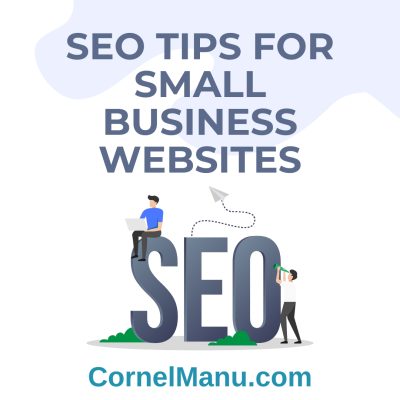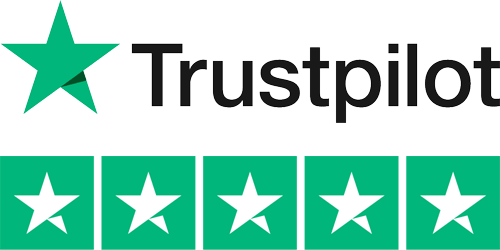Increase your online visibility to boost your sales by up to 30%+ per year. 📈
Get to the top spot in Google without breaking the bank!
SEO Tips for Small Business Websites
 In the competitive world of online business, SEO (Search Engine Optimization) is no longer optional. It's a necessity for small businesses aiming to attract organic traffic, engage with their audience, and compete with larger players in their industry.
In the competitive world of online business, SEO (Search Engine Optimization) is no longer optional. It's a necessity for small businesses aiming to attract organic traffic, engage with their audience, and compete with larger players in their industry.
This detailed guide will provide actionable tips to optimize your small business website, enhance its visibility, and build a sustainable online presence.
What Is Small Business SEO?
Small business SEO is the practice of optimizing a website to improve its visibility in search engine results pages (SERPs). It is tailored to the unique needs of small businesses, often focusing on maximizing local visibility, targeting niche audiences, and operating within limited budgets.
How It Differs from Enterprise SEO
While enterprise SEO typically targets large-scale websites with thousands of pages and a broader audience, small business SEO focuses on:
- Localized Targeting: Small businesses often aim to attract customers within a specific geographic area.
- Cost-Effectiveness: Smaller budgets require prioritizing strategies with the best return on investment.
- Personalized Strategies: Tailored approaches are necessary to stand out in niche markets.
Small Business SEO vs. Local SEO
Local SEO is a subset of small business SEO focused on enhancing visibility within a particular geographic area. It includes strategies like optimizing for "near me" searches, ensuring consistent business listings, and managing online reviews. For example:
- A bakery in New York would prioritize "local SEO" to attract customers nearby.
- An online bakery selling across the U.S. might focus on broader small business SEO to reach a wider audience.
Benefits of SEO for Small Businesses
Investing in SEO offers a wealth of benefits for small businesses, many of which extend beyond simply driving traffic to your website.
1. Increased Awareness
Appearing at the top of search results makes your brand more visible to potential customers. People trust Google’s top results, so ranking higher can lead to increased brand recognition.
How to Achieve This:
- Focus on building domain authority through consistent, high-quality content.
- Ensure your website is optimized for user intent, delivering the information searchers seek.
2. Increased Traffic
SEO drives organic traffic, which means visitors find your website through search results without you paying for ads. This type of traffic tends to convert better than paid traffic because users are actively looking for solutions.
Why This Matters:
Organic traffic builds trust and credibility over time. Unlike paid traffic, which stops when your budget runs out, organic visitors keep coming as long as your SEO strategy is effective.
3. Connect With Your Target Audience Early
SEO allows you to engage with potential customers at the beginning of their journey. By answering their questions or solving their problems, you can position your business as their go-to solution.
Strategies to Connect:
- Create FAQ pages addressing common customer concerns.
- Write blog posts tailored to different stages of the buyer's journey, from awareness to decision-making.
4. Competitive Advantage
Even small businesses can compete with larger companies by focusing on niche keywords or providing better content tailored to customer needs.
Key Actions to Take:
- Perform a competitor analysis to identify their strengths and weaknesses.
- Target underserved keywords that your competitors may have overlooked.
5. You’re Open 24/7
SEO ensures your website works for you around the clock. Even when you’re not available, your optimized content can attract and convert customers.
6. Cost-Effectiveness
Unlike paid ads, SEO offers long-term benefits without recurring costs. It’s an investment that pays dividends over time.
Tip for Success:
Combine SEO with content marketing to reduce dependency on paid advertising and create evergreen resources that consistently drive traffic.
15 SEO Tips for Small Businesses
1. Set Up Google Analytics and Google Search Console
Both tools are essential for understanding your website’s performance.
- Google Analytics: Tracks visitor behavior, identifying which pages attract traffic and which drive conversions.
- Google Search Console: Monitors your search performance, highlighting indexing errors, mobile usability issues, and keyword rankings.
How to Get Started:
- Create accounts for both tools and link them to your website.
- Use Google Tag Manager to implement tracking codes seamlessly.
- Regularly check for actionable insights, like underperforming keywords or pages.
2. Set Up and Optimize Your Google Business Profile
A Google Business Profile is critical for local SEO, helping your business appear in local search results and Google Maps.
Steps to Optimize:
- Claim Your Profile: If you haven’t already, claim your business on Google.
- Complete Every Field: Add photos, descriptions, hours, and accurate contact details.
- Engage With Customers: Regularly update your profile with posts and respond to reviews to build trust.
3. Conduct Keyword Research
Keyword research ensures you’re targeting the terms your audience is searching for.
Best Practices:
- Use tools like Ubersuggest, Google Keyword Planner, or Answer the Public to discover keywords.
- Prioritize long-tail keywords like “affordable web design for small businesses,” which are less competitive and often lead to better conversions.
4. Analyze SERP Competitors
Knowing what your competitors are doing well can guide your strategy.
Key Steps:
- Use tools like SEMrush to identify competitors’ top-ranking pages.
- Study their content structure, backlinks, and keyword use.
5. Optimize Your Website Structure
A clean, intuitive structure helps users and search engines navigate your site easily.
Tips for Success:
- Use clear menus and categories to organize content.
- Create a sitemap to help search engines crawl your site effectively.
6. Add Schema Markup
Schema markup is a type of structured data that enhances how your content appears in search results.
Benefits:
- Improves click-through rates by providing rich snippets.
- Helps Google understand the context of your content better.
7. Optimize On-Page Elements
- Titles: Keep them concise and include primary keywords.
- Meta Descriptions: Write engaging descriptions that entice users to click.
- Headers: Use a logical hierarchy (H1, H2, H3) to structure content.
8. Create Content to Connect With Your Customers
Content is the backbone of any SEO strategy. By creating valuable, engaging, and relevant content, you can attract and retain your target audience while establishing authority in your niche.
How to Create Effective Content:
- Understand Your Audience: Research your customers' pain points and preferences using tools like Google Analytics and social media insights.
- Answer Their Questions: Address frequently asked questions or common problems in your blog posts or videos.
- Diversify Content Types: Include blog posts, infographics, videos, case studies, and eBooks to cater to different audience preferences.
- Focus on Quality Over Quantity: One well-researched, in-depth article is more valuable than multiple superficial posts.
Why It Matters:
High-quality content attracts backlinks, encourages sharing, and keeps users engaged on your website, which can lead to better rankings and conversions.
9. Find and Fix Basic SEO Issues
Technical SEO issues can harm your website's performance and prevent it from ranking well. Regularly auditing your site ensures it remains search-engine friendly.
Common Issues to Check:
- Broken Links: Use tools like Screaming Frog to identify 404 errors and fix them.
- Duplicate Content: Tools like Siteliner can detect duplicate pages that might confuse search engines.
- Slow Page Speeds: Test your site on Google PageSpeed Insights and implement suggested improvements.
Why It’s Important:
Resolving these issues improves user experience, helps search engines crawl your site effectively, and prevents penalties.
10. Create Relevant Online Listings for Your Business
Consistency in business listings across the web ensures that customers and search engines have accurate information about your business.
Key Steps:
- Claim your profiles on platforms like Yelp, Bing Places, and TripAdvisor.
- Ensure your NAP (Name, Address, Phone Number) is consistent across all directories.
- Use a tool like BrightLocal to manage and monitor your listings efficiently.
Benefits:
Accurate listings enhance local search visibility and prevent potential customers from encountering outdated or incorrect information.
11. Ask Suppliers and Business Associations to Link to Your Website
Backlinks remain a crucial ranking factor, but they need to come from credible sources. Building relationships with suppliers, industry associations, or local organizations can help you earn valuable links.
How to Approach This:
- Reach Out Directly: Politely ask suppliers or business partners to include a link to your website in their resources or partner pages.
- Offer Value: Suggest co-creating a case study, blog post, or testimonial to provide mutual benefit.
- Engage Locally: If you’re a member of a local business group, request a listing with a link to your website on their directory.
Why It Matters:
High-quality backlinks from relevant websites boost your domain authority and send positive ranking signals to search engines.
12. Monitor Local Listings
For businesses with physical locations, local SEO relies heavily on the accuracy of your listings in search engines and directories.
Tools to Use:
- Moz Local: Monitors your local citations and identifies inconsistencies.
- Google Business Profile Dashboard: Alerts you to suggested edits or changes to your profile.
Ongoing Tasks:
- Regularly update your hours, address, and contact details.
- Monitor customer reviews and respond promptly to build trust.
Impact:
Well-maintained local listings enhance your reputation, improve customer trust, and support higher rankings in local search results.
13. Encourage and Respond to Reviews
Positive reviews not only influence potential customers but also impact your local SEO rankings.
Best Practices:
- Ask for Reviews: Request feedback from satisfied customers after a purchase or service.
- Engage With Reviewers: Thank customers for positive feedback and address negative reviews professionally.
- Leverage Review Platforms: Focus on platforms like Google, Yelp, and industry-specific review sites.
SEO Impact:
Search engines consider reviews as trust signals, and businesses with more positive reviews often rank higher in local search results.
14. Track Your Rankings
SEO is an ongoing process, and tracking your rankings helps you measure progress and identify areas for improvement.
How to Track Rankings:
- Use tools like Ahrefs, SEMrush, or Ubersuggest to monitor keyword positions.
- Identify which pages are performing well and replicate their success on underperforming pages.
- Monitor search traffic trends in Google Analytics to correlate rankings with user behavior.
Why It’s Important:
Ranking trends provide insights into the effectiveness of your SEO strategy, helping you adjust and focus on what works best for your business.
Conclusion: The Long-Term Value of SEO
SEO is a powerful tool for small businesses, but it’s a long-term strategy that requires consistent effort. While shortcuts like buying backlinks or rushing through optimizations might seem tempting, they rarely deliver sustainable results.
Instead, invest in a comprehensive SEO strategy that covers technical optimization, content creation, and audience engagement. By focusing on the long-term, you’ll build a robust online presence that continuously attracts and converts customers.
If you’re ready to take your SEO efforts to the next level, consider partnering with an expert. My SEO packages start at an affordable €500 per month, offering personalized strategies tailored to your small business needs. With ongoing support and proven results, you can focus on running your business while I handle the complexities of SEO.
Share this:
- Click to share on X (Opens in new window) X
- Click to share on Facebook (Opens in new window) Facebook
- Click to share on LinkedIn (Opens in new window) LinkedIn
- Click to share on Reddit (Opens in new window) Reddit
- Click to share on Tumblr (Opens in new window) Tumblr
- Click to share on Pinterest (Opens in new window) Pinterest


Leave a Comment